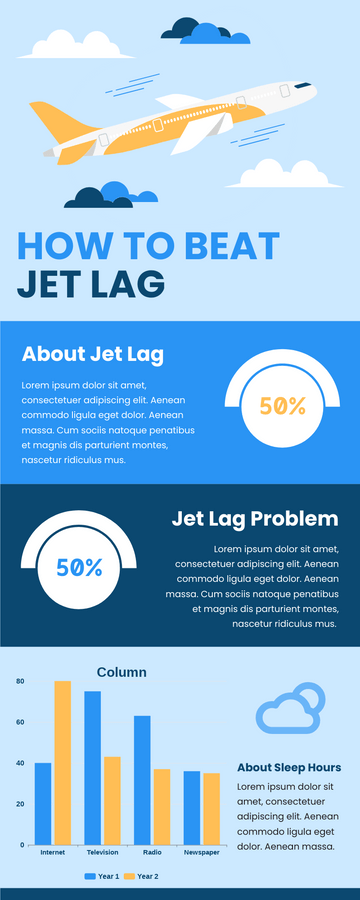How To Beat Jet Lag Infographic
Table of Contents
hide
Jet lag, also known as time zone shift syndrome or desynchronization, occurs when people rapidly move across time zones. It is a physiological state due to the body’s circadian rhythm, also known as the biological clock. Before travelers completely adapt to the new time zone, jet lag can last many days. For pilots, crew members and individuals who fly a lot, jet lag is especially serious. Airlines have rules intended to tackle jet lag-induced pilot fatigue.
Key Facts of Jet Lag
- The same jet lag symptoms can also be suffered by infants and babies as adults.
- You have a messy meal schedule, i.e. a loss of appetite, or a feeling of hunger in the middle of the night.
Constipation, diarrhea or indigestion are common side effects of jet lag. For some particularly unlucky travelers, all three are possible.
Jet Lag Hacks
- 300mcg of melatonin nightly at 8-10pm
- Before you depart, simulate your new schedule, i.e. you can try moving your meal times closer to the time you’ll be taking them at your destination.
- You can also adapt your new schedule while in fight, i.e. try to sleep on the plane if it’s nighttime where you’re going or stay awake if it’s daytime.
- If you need to be at your best during an activity at your destination, try to arrive a few days early so your mind and body can adjust.
- Get up and walk regularly, do some static exercise, and stretch on the plane.


